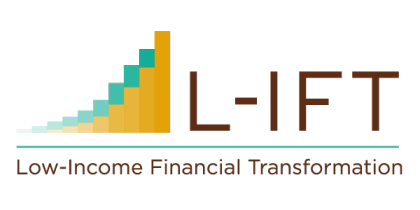The limited outbreak of the Corona virus in Uganda was followed by the government implementing a lockdown. As a result of the lock-down rules a new way of Refugee Food distribution needed to be developed for Nakivale and Kiryandongo settlements.
The lockdown rules forbid all the transportation systems hence bodaboda, taxi or bus to and from the settlements including inside the settlements are banned. This has made it difficult for the refugees to reach the food distribution place and particularly to carry their food items back to their homes as some of them are found very far from the distribution place. Nelly, one of the researchers found in Nakivale, said that people started to come on foot to Rubondo (15Km from their house) to get their food items. It would already have been very hard for them to carry the food themselves over such distance, but to boot their misery, the distribution authorities said that their son, who was on the card to receive, should present himself in person. They went home without receiving any food.
Nelly:
Yesterday on the way to go see my respondent, I met two women, they were going to receive food, but their distribution point is in Rubondo (15km of road), they tried to find a motorbike but it was impossible, even if they managed to get there, how will they bring the food? And on their certificates, one is with her son and the other is with two children and they were told that they themselves (their children) should be present to receive food, very desperate, they decided to return home.
In general, the refugees are worried whether the food distribution will arrive. When the food did not come on the expected date and was a week late, people became anxious and thought no food would be given this month.
Nelly:
Firstly the panic was visible in the community because they had communicated that they had reduced the food and instead of starting the distribution on the 7th, they started on the 14th…
Normally the food distribution requires a large number of people to queue up for hours, even entire days on end. They typically stand close together each time moving up a little in the queue. For Covid-19 prevention, the entire logistics of food distribution had to be adjusted.
Nelly:
The first day of the distribution of the food, a lot had changed, people should respect the distance of 4 meters and there were guides on each line to better understand the procedure to follow, there was also space for washing hands before entering, inside also after going to the verification machine, you should have washed your hands again. We could notice, many have been changed at the distribution center, for example usually you receive food at base camp 1 and you are told that you are in Rubondo which caused a lot of misfortune to people because there was no transport. We also observed distress for people who usually receive food in distant centers because there was no transport...

Once the refugees reach the area of the distribution place, there are armed police making sure that the refugees are respecting all the rules. At the distribution point, there is water and soap available and everyone has to wash their hands before they enter the food distribution fence. They must respect their physical distancing (the official distance in Uganda is 4 meters) when washing their hands and inside the fence when queuing for the distribution. To help people to realize how much distance they need to observe, there are while lines painted on the ground about 2 meters apart (in Kiryandongo) and circles about 2 meters apart (in Nakivale). You wait by a circle or a line until the person in front of you moves up and you can move up a line or a circle.
To receive the food, there is a verification machine to check the ID or refugee certificate and food distribution card. They must also wash after using the verification machine.
Only those people who are appointed to collect their food on the specific day can be present at the food distribution point. No one else is allowed to hang around there. If someone is found going against these rules and resists police orders, the police are authorized to shoot pointing their legs.
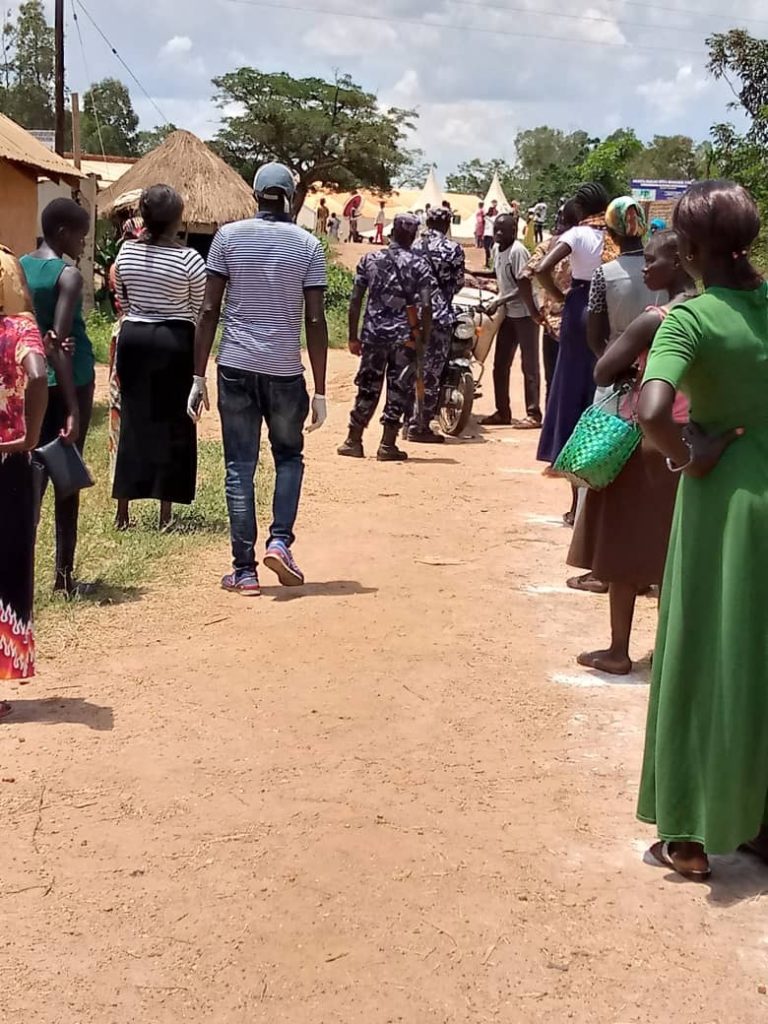
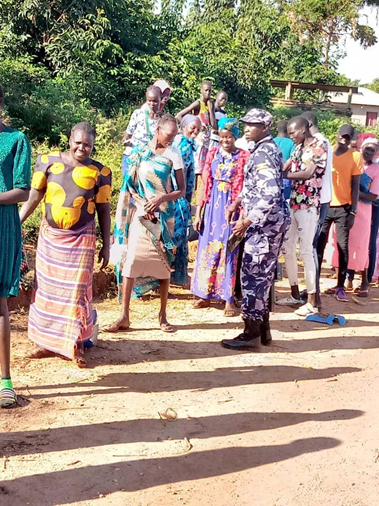

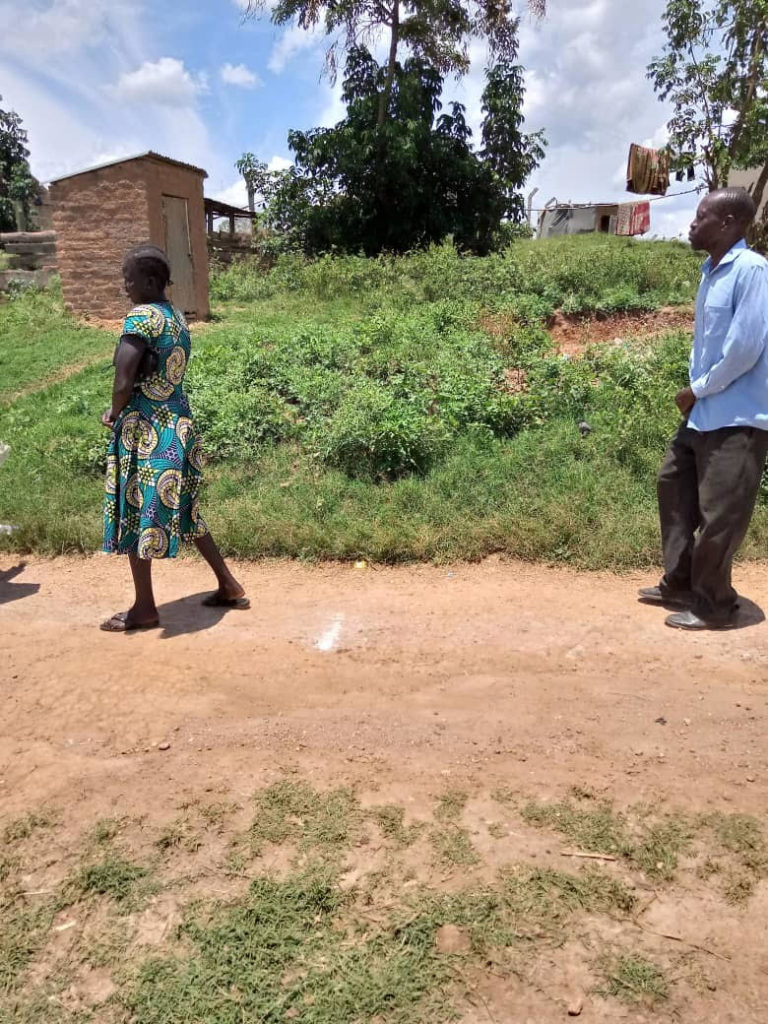
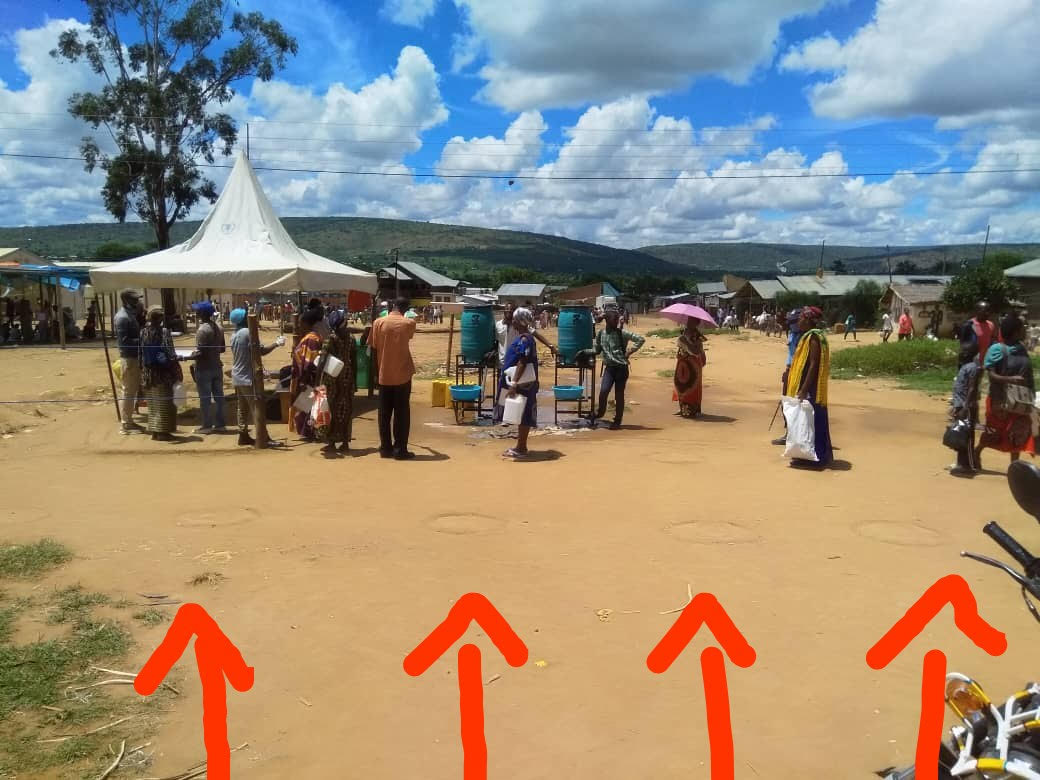
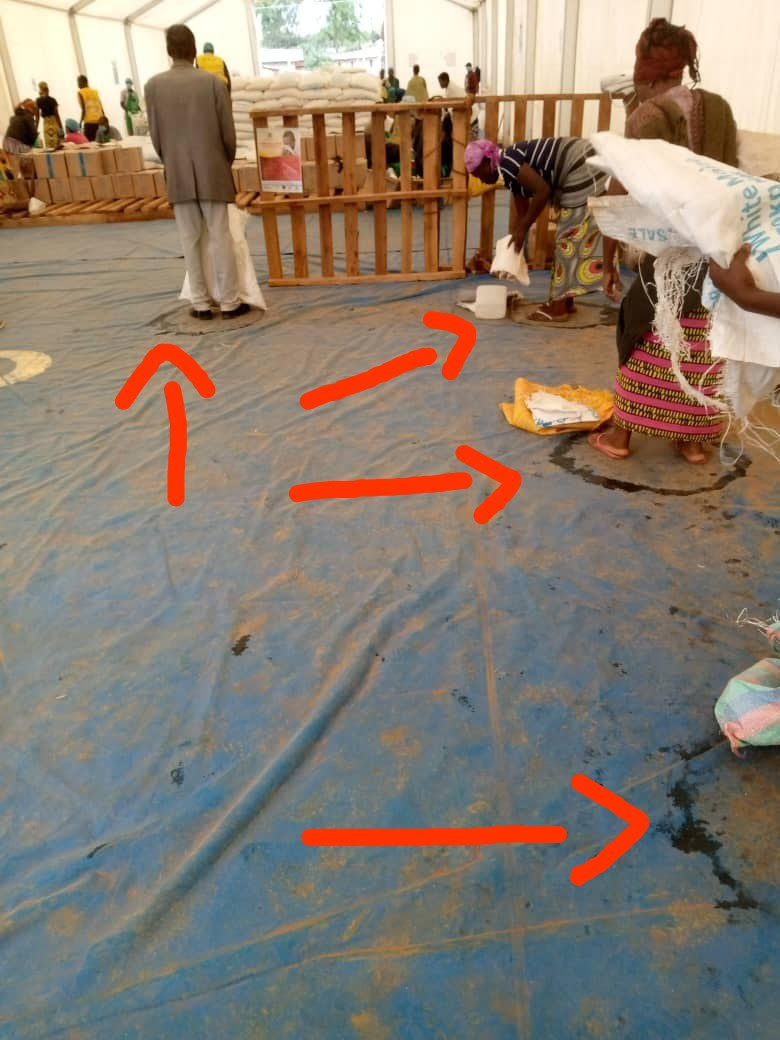
Unfortunately, unrelated to Covid-19 outbreak, the WFP faced a decline in donor funding and had to reduce by 30 percent the amount of cash and food items for distribution. Before the lockdown, people received 31,000UGX cash, 12.6kgs of Maize, 3 kg of Pulse, 0.9kg of Vegetable oil and 0.15kg of salt per person, but now, they have just received 22,000UGX, 8.82kg of Maize, 2.1kg of Pulse, 0.63kg of vegetable oil and 0kg of salt per person.
Due to the lock-down the refugees are losing most of their earned income sources as businesses have to shut, employment options have mostly disappeared. The minimal food distribution is also significantly lower. It is most unfortunate these two events happen to coincide.
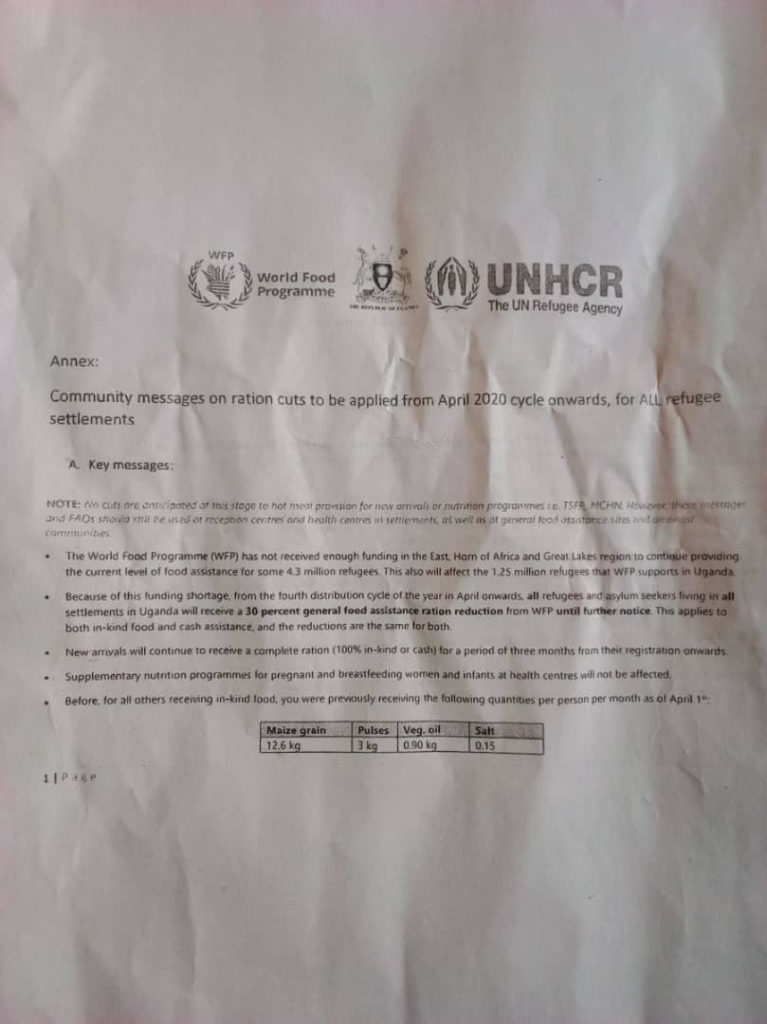
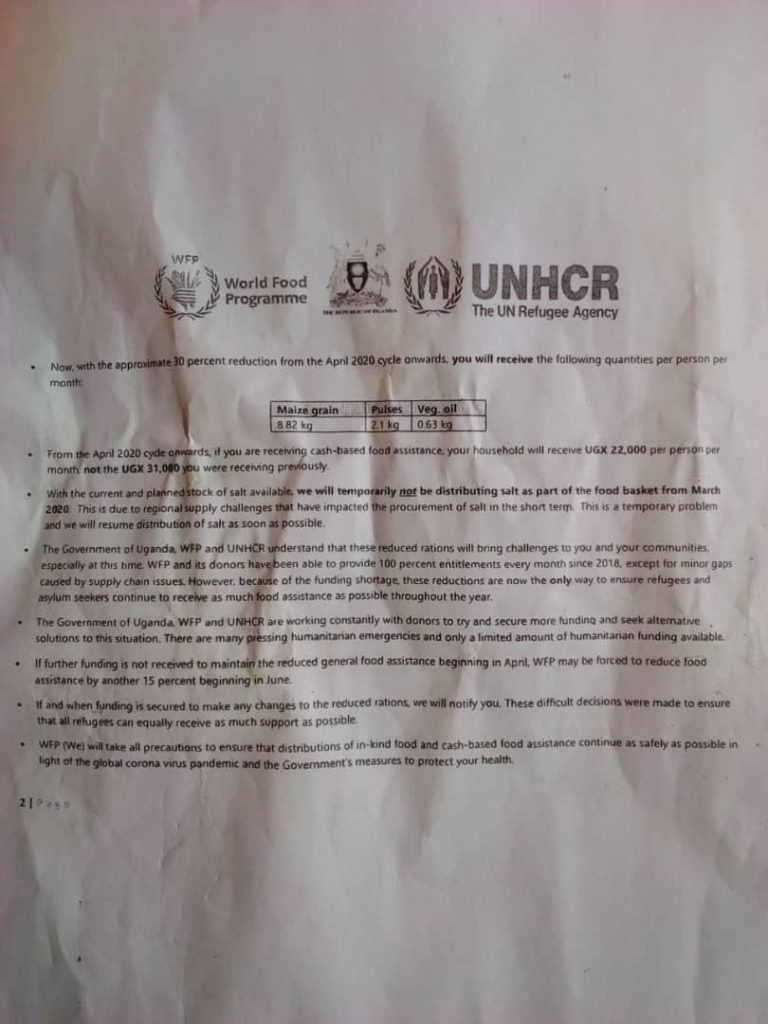
The current situation may also result in stopping some people illicitly receiving food distribution. Apparently, there are families who stay in towns, from where they are no longer entitled to food distribution, travelling back to receive food, pretending to still live in the settlement.
Nelly:
Another observation that I saw is that the refugees who live outside the camp could not come to recover food or signed the money because there was no transport because there are those who are in Kampala and those who are in Mbarara and other cities too. There are even those who tried to come on foot from Mbarara to Nakivale (around 45km I think), but on the second day the authorities stopped even those who tried to come on foot.
This blog is written using data from the RISE project, funded by Opportunity International, with consulting services from PHB.
PHB collaborates with international development agencies, banks, regulators and other impact makers around the world to assess, implement and scale digital interventions. We leverage the expertise of our team to support the design of digital finance ecosystems that can strengthen the resilience of communities in need. To learn more about PHB activities, publications and training, visit www.phbdevelopment.com
